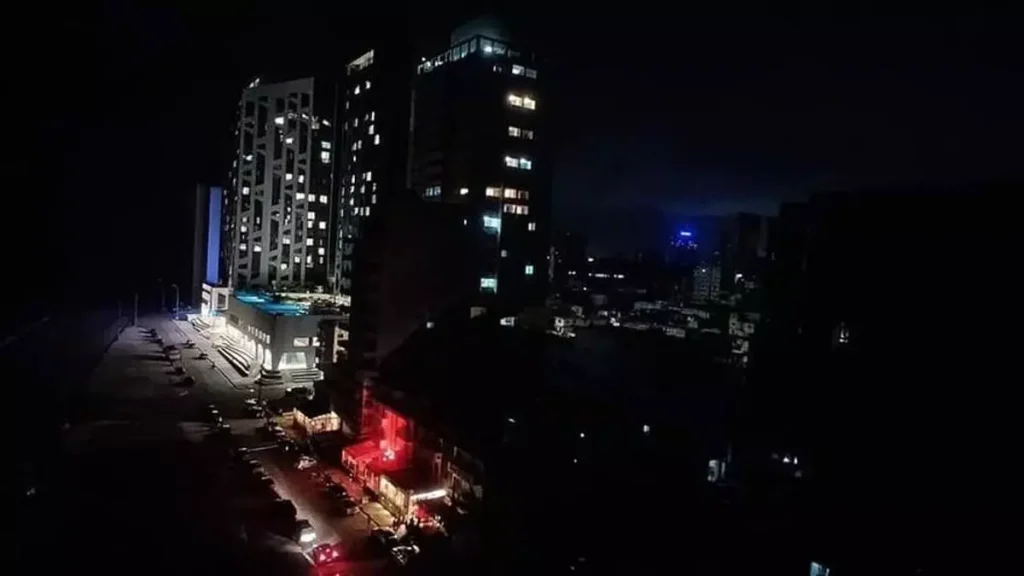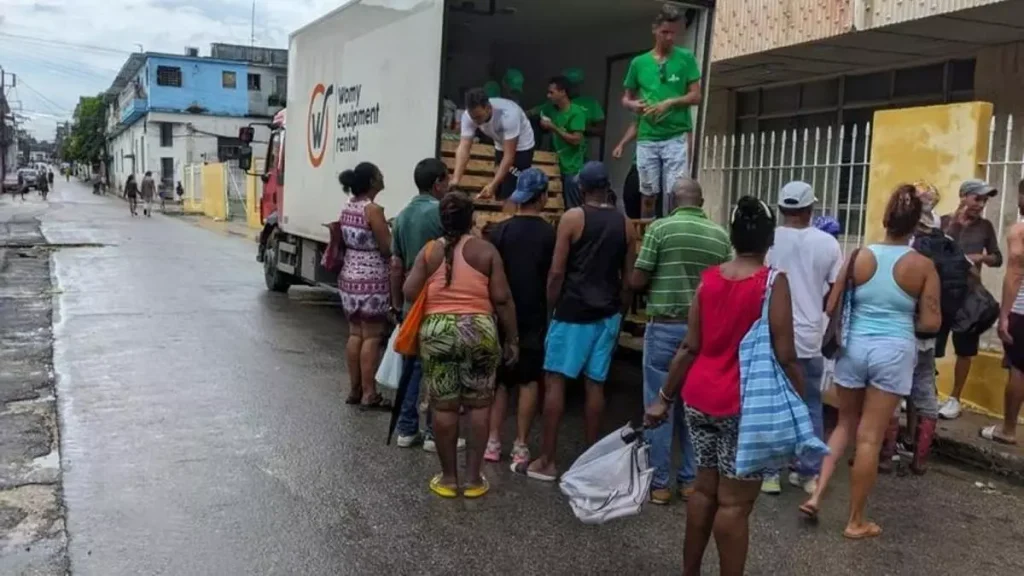In a statement they remind the Revolutionary Armed Forces that “they owe their loyalty to the people, not to the oligarchy”

![]() 14ymedio, Havana, 23 October 2024 — Cuba is experiencing “a stage of existential danger.” In this situation, in the face of “the final collapse of the national energy system” and with the population living “fenced in by the lack of food, electricity and water,” the Military Conscientious Objectors group urged the creation of a civic-military committee with a group of citizens that synthesizes the main demands of the population, including the resignation of those who caused this crisis.
14ymedio, Havana, 23 October 2024 — Cuba is experiencing “a stage of existential danger.” In this situation, in the face of “the final collapse of the national energy system” and with the population living “fenced in by the lack of food, electricity and water,” the Military Conscientious Objectors group urged the creation of a civic-military committee with a group of citizens that synthesizes the main demands of the population, including the resignation of those who caused this crisis.
In a statement released on Tuesday, the group, founded in 2021 by former Cuban officers in exile, pointed out that this committee should implement the process of replacing the leadership in the Government with a provisional executive team, as well as the steps to be taken for the organization of free elections and the formation of a Constituent Assembly.
“Liberation from the totalitarian regime will allow the country to develop with the most modern technologies and, thus, finally incorporate Cuban society into the new era of information of the 21st century. Being miserable and oppressed is not living, but dying every day,” it added.
The total blackout suffered in the country in recent days, they say, is presented by the Government as an electricity supply crisis. It’s not
The pointed out that the moment the Island experiences today is “like that of the October Crisis” – referring to the 1962 missile crisis, provoked by the installation of Soviet nuclear missiles in Cuban territory – but this time, “courtesy of the current Cuban oligarchy.” The total blackout suffered in the country in recent days is presented by the Government as an electricity continue reading
The military in exile remarked that the population suffers not only from the lack of electricity and food, but also from the increase in various medical conditions, which cannot be faced due to the “lack of doctors, nurses and medicines.” Hence, the deaths multiply, and the authorities falsify the origin of the deaths, according to statistics, which, however, “are recorded in the cemeteries.”
Cubans experience different types of violence, such as social violence, not having services and basic economic rights, and political violence
The group added that Cubans experience different types of violence, such as social violence, not having services and basic economic rights for citizens, and political violence “when those who protest against this situation are repressed.” Those elements are “causing as many deaths as a civil war” in the country.
Therefore, they said, it is essential to remove “this parasitic class” from power to achieve the release of all political prisoners (1,113, according to the latest Prisoners Defenders count), as well as to put an end to exile and the lack of political, civil, economic and social freedoms and rights that has plunged the country into the most overwhelming misery.
In the face of the protests that have been experienced in the country in recent days as a result of the total blackout, the former military in exile remember the members of the Revolutionary Armed Forces who “owe their loyalty to the people, not to the oligarchy.”
Finally, in the text that culminates with the phrase “Homeland and life,”the military in exile recalled that rebellion is a constitutional right that is in force (Article 4) and a principle of democratic jurisprudence since the Universal Declaration of Human Rights, which also appeared in the Constitution of Cuba of 1940.
Translated by Regina Anavy
________________
COLLABORATE WITH OUR WORK: The 14ymedio team is committed to practicing serious journalism that reflects Cuba’s reality in all its depth. Thank you for joining us on this long journey. We invite you to continue supporting us by becoming a member of 14ymedio now. Together we can continue transforming journalism in Cuba.



















